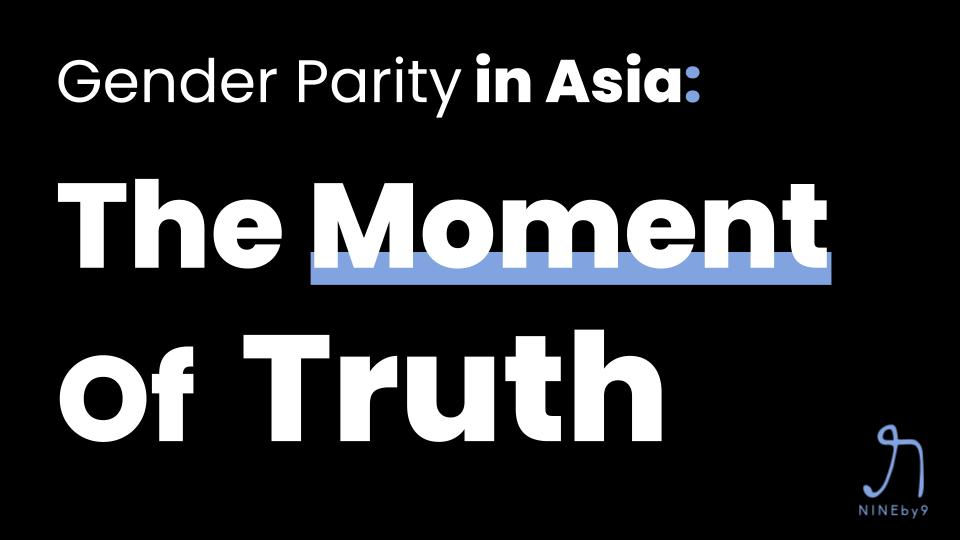Gender Parity in Asia:
The Moment of Truth
NINEby9's first research study reveals women's experience of gender equality in Asia and an actionable framework for sustainable impact.
When you hit “DOWNLOAD NOW” , please proceed to click on the other link 'Click here' that appears. You will will you’ll be redirected to a PDF file.
What do
organisations need
to do, to achieve
GENDER PARITY?
?


Our independent and proprietary research examines gender parity factors for working women in Asia.
Help individuals and organisations define what gender parity means for them.
Track progress over the next 9 years to identify trends, gaps, recommended changes to achieve gender parity.
Provide an actionable framework to enable sustainable impact across the ever-changing Asian landscape.
We are partnering with Kadence International, an award-winning market research company with headquarters in Singapore and local offices in key Asian markets, Dynata and Yale-NUS College to undertake this research.


NINEby9 delivers a multi-year proprietary research study that identifies the nine key changes required over the next 9 years to accelerate progress on gender equality and enable sustainable change.
The research team spoke to 3,000 working women across Singapore, Hong Kong, China, India, Japan and Indonesia, that cover a variety of industries, job roles and professions. We captured 7,500 stories of discrimination and the unique challenges that women in Asia in the labor force face in their daily working lives.
As part of our analysis, we identified key trends and gaps by age, profession and market nuance to provide one of the most comprehensive and actionable list of changes that need to be prioritised for gender parity to succeed.
The focus of the research is to identify the relative importance of several drivers towards gender parity – by asking a mix of women between ages 20 and 50 to assess elements of our gender parity framework.
The research program has been built after a robust literature review taking in the best learnings from around the world with the support of Yale-NUS College.
Over the course of the next 9 years, we will expand this research, and track the ever-changing landscapes identifying where progress is being made, and what still requires focus.


